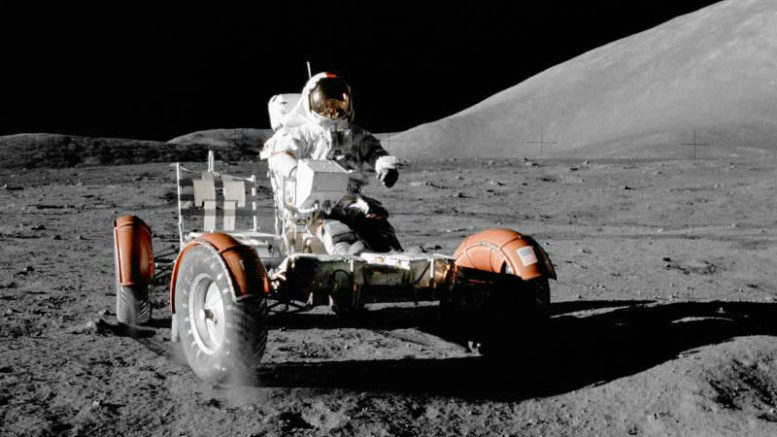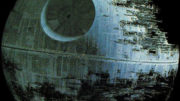Ever since I read that a German team is planning to send an unmanned probe back to the moon, I’ve been fascinated. The moon landing was, I would say, one of the seminal events in my young life. Although I was in fact quite young when it happened, the idea of space travelers on another planet continued to resonate for decades. Seinfeld described the phenomenon perfectly over twenty years ago:
We went to the moon for a variety of not-particularly valid reasons: Because we could, because we didn’t want the Soviets to go there first (turns out they were never even close), because the president who proposed it was assassinated and no one wanted to be the guy who said we couldn’t do it.
When we got there we got a lot of data but not a lot of useful data. It was the process of putting people on the moon that led to massive innovation in everything from computing to fashion, not the actual discovery of what we found there. The moon, it turns out, is a big hunk of relatively worthless rock and there probably isn’t anything worth doing there or anything worth bringing back.
It’s easy to think that going back now would be considerably easier since we have all these computers and synthetic materials and all the stuff we’ve learned since 1969. While it’s true we’ve learned a lot and it would probably be easier to make course corrections and do experiments, the basic physics of space travel haven’t changed and most of that stuff actually dates back to the 17th century. It just took us until 1969 to build a rocket big enough to take advantage of the physics. Since then, we haven’t come up with some miraculous way to cheat those laws of physics and we’re not likely to.
Yet, I think it’s romantic to think we’ll go back, even with robotic probes. It would be more romantic to go there in person but it does sort of seem like a drag once you get there. After all it’s utterly impossible to survive without bringing all the food, water and air you need with you. For some reason it seems like the moon has been looming large in popular culture in some very strange ways lately, from the aforementioned German expedition to an increase in interest in Space: 1999, the British sci-fi show where the moon broke away from the Earth. Moon madness seems to be boiling just under the surface.
The most pragmatic use for the moon would be as some sort of refueling station for missions to Mars or beyond. There’s at least some reasonable home that people could live on Mars, which has an atmosphere and some water, and since you spend the majority of your energy getting off the Earth, it would make sense to get up to the moon where you could restock and get ready for a mission to Mars. The problem of course would be that there’s nothing on the moon with which to refuel. You’d have to come up with some way to creating fuel and supplies up there because really, there’s just nothing, it’s a big ball of rock. Neat idea, but hard to really understand how you’d do it.
I will admit that I as a young person absolutely expected us to have a permanent colony on the moon by now. I would have even wanted to be part of it. But as I said, there’s not a whole heck of a lot to do there once you get there, and there’s only so long you can live there without getting more food, water, or air. In the final analysis, it makes sense that no one lives there. Still… it’s neat to think about it for a little while, right?




